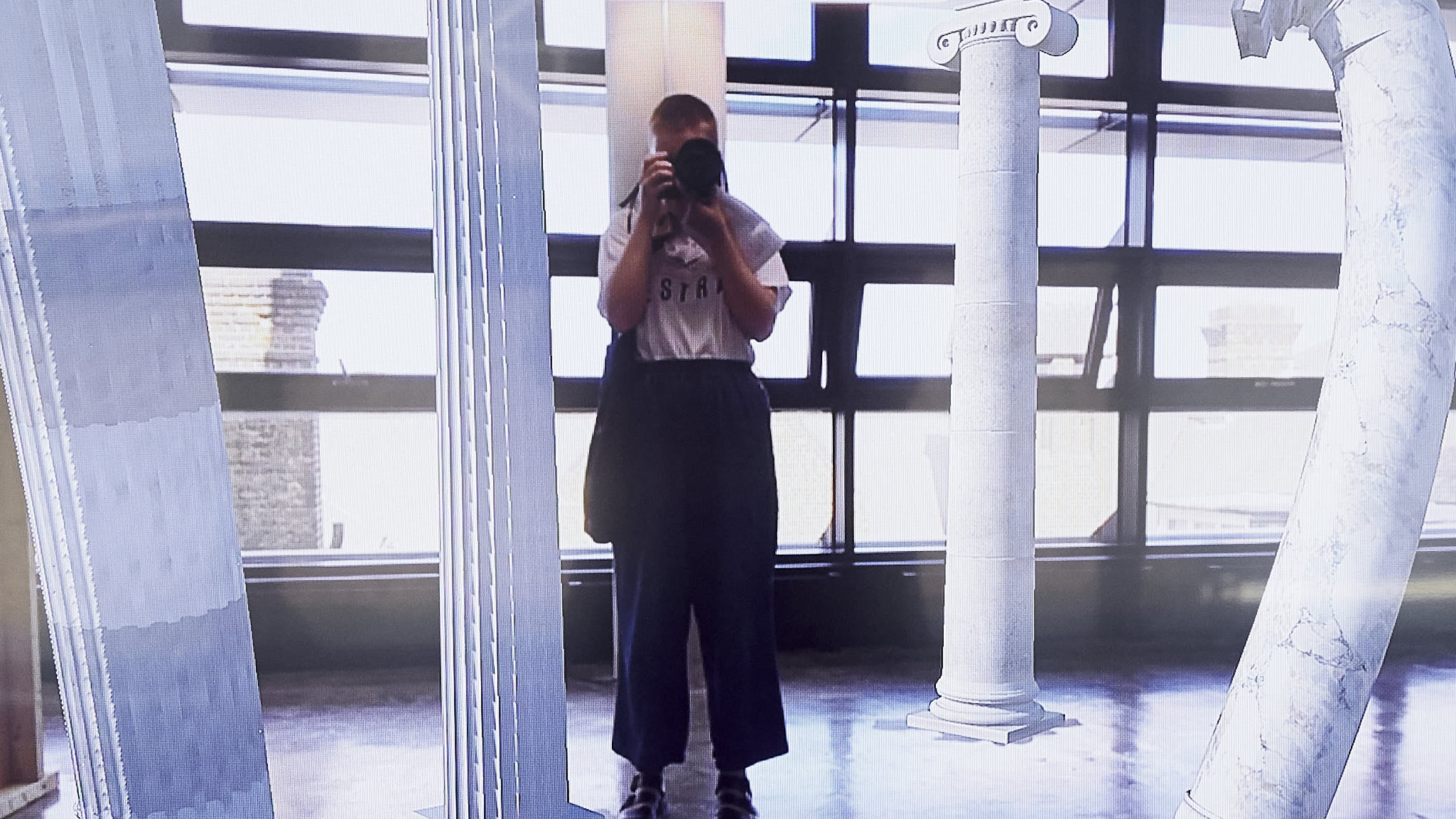Course units
Year 1
Unit 1: Introduction to Fine Art and Computational Arts
Unit 1 will introduce you to the basic principles of fine art and the underlying concepts of computational art practice. You’ll attend workshops and seminars related to instruction-based art. Using this knowledge, you’ll explore how ‘human computation’ can rethink and revise traditional artistic skills and techniques.
Unit 2: Establishing computational arts practice
Unit 2 explores different computer-based tools and computational art practices including generative art, CGI and machine learning. Experimenting with these techniques, you’ll create original works for a work-in-progress show at our computational arts project space. As part of this unit, you’ll also write an essay in response to an art event.
Unit 3: Ideas into computational arts practice
From 3D graphics and game engines to installations and gallery spaces, this unit explores different approaches to working in and creating spaces. You’ll produce your own works for an off-campus exhibition alongside other UAL fine art students. You’ll also work in groups to produce pieces within a virtual environment.
Unit 4: Activating practice
This unit examines the wider contexts in which art is made and shown. Looking beyond the College’s studio environment, you’ll consider how your work can be realised in public spaces. Through the lens of computational arts, you’ll also be introduced to pioneering discourse and practices that create tangible and intangible, prototyped or speculative works that reimagine technology entangled in social and environmental contexts.
Year 2
Unit 5: Exploring context through practice
Unit 5 is about re-establishing your practice and progressing your research methodologies. You’ll explore the artistic potential and critical debates around computational arts. During workshops, you’ll create work that addresses your interests in materials and contextual themes. You’ll also participate in group critiques of yours and your classmates’ work.
Unit 6: Collaborative and collective practices
You will be introduced to different ways in which collaborative working can help you to focus and enhance your own creative strengths. You’ll have the chance to work with fellow students and creative communities.
Unit 7: Refining computational arts practice
During studio seminars, you’ll explore subjects such as politics, sustainability and ethics in relation to machine learning. This will help you develop contextual awareness of the field and its wider applications. At the end of Unit 7, you’ll participate in a group exhibition which responds to emergent software technology contexts.
Unit 8: Audiences
Unit 8 will help you define and articulate your research and practice goals. You’ll focus on the presentation and interaction of computational work and its potential audiences. This will enable you to situate your practice in terms of context, audience and material/technical choices in preparation for your final year.
Year 3
Unit 9: Practice and articulation
The unit will support the creative realisation of your artwork and further development of your practice. You’ll undertake research and present your findings either in written form, or as a presentation or through a live project/work placement. This will be an extension of your previous research.
Unit 10: Practice and presentation
During this unit, you'll continue to refine your practice with the aim of producing a new body of work for a public display degree show. This unit will also develop your understanding of different display and audience engagement methods as well as the ethics of representation.
Optional Diploma between Years 2 and 3
Between Years 2 and 3 of the course, you’ll also have the opportunity to undertake one of the following additional UAL qualifications:
Diploma in Professional Studies (DPS)
This optional diploma can be taken between years 2 and 3. With support from your tutors, you’ll undertake an industry placement for a minimum of 100 days/20 weeks. As well as developing industry skills, you’ll gain an additional qualification upon successful completion.
Diploma in Creative Computing
Between years 2 and 3, you can undertake the year-long Diploma in Creative Computing. This will develop your skills in creative computing alongside your degree. After successfully completing the diploma and your undergraduate course, you’ll graduate with an enhanced degree: BA (Hons) Fine Art: Drawing (with Creative Computing).

